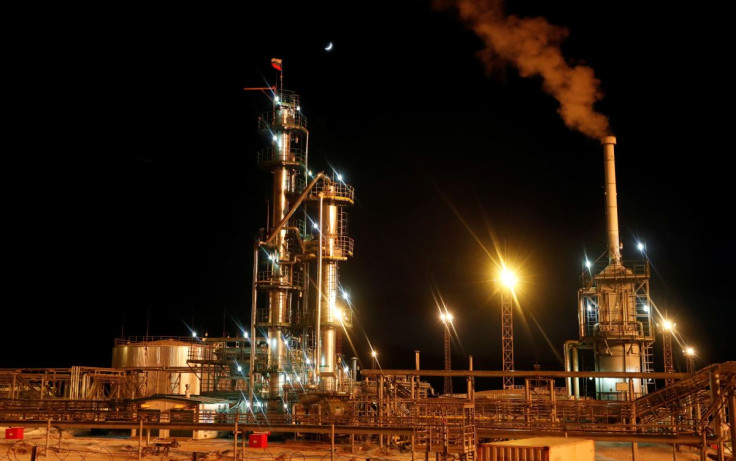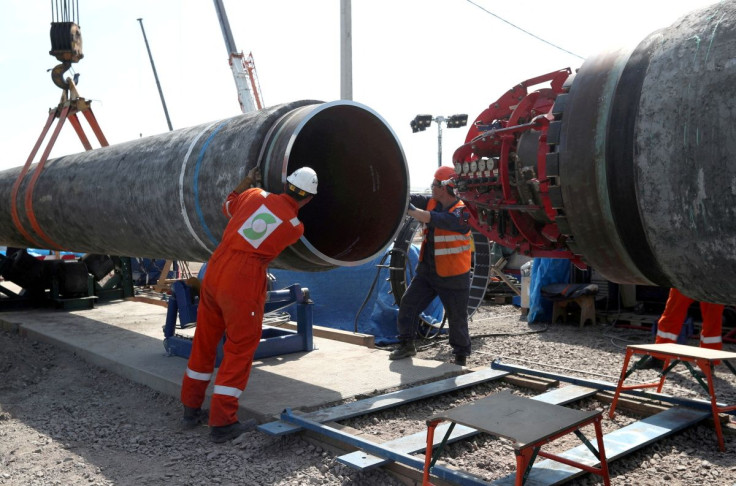US Ready To Target Russia's Oil Imports, Adding To Anxiety On Oil Prices
President Joe Biden on Tuesday declared a ban on the import of Russian oil into the U.S. in the latest move to impose costs on Russia for its war in Ukraine.
In a speech from the White House before a scheduled trip to Texas, Biden said his administration was targeting the "main artery of Russia's economy" to add to the costs of previous Western sanctions in response to the war in Ukraine.
"We’re banning all imports of Russian oil and gas and energy,” Biden said. “That means Russian oil will no longer be acceptable at U.S. ports and the American people will deal another powerful blow to [Russian President Vladimir] Putin’s war machine.”
By taking aim at the lifeblood of the Russian economy, Biden has defied warnings from Russia that any sanctions against its energy sector would have global repercussions. On Monday, Russia's Energy Minister Alexander Novak predicted that a ban on his country's oil exports could drive oil prices up to unimaginable levels.
“The surge in prices would be unpredictable. It would be $300 per barrel if not more,” Novak said on Russian state television.

Biden warned that cutting off the flow of Russian crude to the U.S. will not be without cost for the American consumer. In a nod to rising gas prices, Biden said prices would go up and his administration would do everything it can to keep prices down and discourage any price gouging by businesses.
"Russia's aggression is costing us all and it is no time for profiteering or price gouging," said Biden.
A ban on imports on the world’s second-largest oil exporter has added extra pressure to an already jittery energy market. Shortly after news broke of the expected ban on Russian oil, the price of Brent crude rose 9.15% to $132.78 per barrel, and the West Texas Intermediate index rose 9.32% to $128.49 after Biden's announcement.
Early on Monday morning, oil surged to $139 a barrel on fears of U.S. actions against the Russian energy sector and concerns that no deal will be reached with Iran over its nuclear program, leaving yet another oil-rich nation out of the market.
The highest oil price on record was $147.27 in 2008 amid the Great Recession. Before the war, analysts at many of the largest global banks predicted that oil prices would climb over $120 if Russia invaded Ukraine, but some have predicted a surge to $150 per barrel or higher.
“We’ve already had a major impact,” said Secretary of State Antony Blinken on NBC's "Meet the Press,” referring to U.S. sanctions on Russia’s financial institutions and oligarchs.
Members of Congress are making clear to the Biden administration that they favor a ban on imports of Russian crude. Speaker of the House Nancy Pelosi has voiced her support for the ban while a bipartisan consensus has begun to emerge in the Senate to put one in place. The Biden administration has shifted from its earlier position that a ban on Russian oil would be strategically undesirable.
Ukrainian leaders have been vocal in urging the U.S. to enact an oil import ban against Russia. On Saturday, Ukraine’s President Volodymyr Zelensky pushed Congress to enact a ban.
Russia is not the largest source of oil entering the U.S., but its market share in Europe is much stronger. Biden made clear in his remarks that Washington was acting unilaterally on this measure, noting the continued disagreements within the European Union on whether or not it was economically feasible to ban Russian oil imports.
Germany, the head of the G7’s rotating presidency and an essential partner in crafting sanctions on Russia, came out against any talk of a ban a day before Biden's address. However, it has been reported that the U.K. will also announce a ban on Russian oil imports and Japan is pondering a similar move.

© Copyright IBTimes 2024. All rights reserved.




















